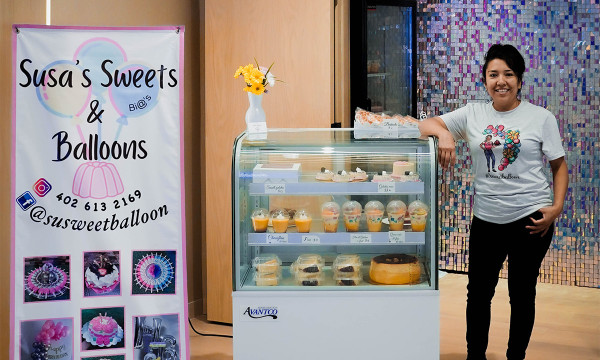Official word from the Dept. of the Treasury
According to the Department of the Treasury, “If you receive calls, emails, or other communications claiming to be the Treasury Department and offering COVID-19 related grants or stimulus payments in exchange for personal financial information, or an advance fee, tax, or charge of any kind, including the purchase of gift cards, please do not respond.”
Bottom line: The Department of the Treasury will not reach out to you via phone or email or other medium to collect your personal financial information, so don’t be fooled.
Fake remote work opportunities
Scammers may pose as companies giving people the “opportunity” to work from home while trying to steal your private information. Keep your eyes peeled for something that seems suspicious. Can you verify that the business is real? Are you seeing the job listing on reputable sites like Indeed or the company’s website? We know that many folks are extra vulnerable to these types of scams right now due to quarantines or companies closing, but try to stay vigilant. Do not send money to the company, and if they send you a check to deposit and request you to send funds to someone else, it is a scam.
COVID-19 vaccines
Watch out for suspicious direct messages or posts on social media that link to external sites claiming to have reservations for a COVID-19 vaccine. Similarly, if someone calls and claims to have a spot on a waiting list for a vaccine, hang up. A vaccine currently does not exist.
Please keep in mind that banks like UBT will never ask for your account information over social media, nor would a medical provider’s office need your account information to issue a vaccine.
$1,200 checks
Scammers will attempt to take advantage of the recent news of $1,200 relief checks coming from the government. Here are some important reminders:
- Phone calls asking for account numbers to deposit the money or calls asking for a physical checks to verify someone’s account are not real.
- As long as you filed taxes for 2018 and/or 2019, the government already has your account information from your yearly tax files to send you your money.
- If you didn’t give the IRS your account information in your 2018 or 2019 return, you can set up direct deposit of your check directly with the IRS at irs.gov/coronavirus.
- No one has early access to this money, anyone that claims to is a scammer.
Medical equipment
Scammers may impersonate organizations like the Red Cross and claim to sell or give away medical supplies by sending people door to door. The Red Cross is not sending people door to door to deliver any medical supplies.
Malware and phishing emails or text messages
Watch out for emails and messages with third-party links about the virus. These links can install malware on your computer to retrieve personal and financial information.
For example, headlines will usually read about a COVID-19 case or outbreak in the area from a site posing to be the Center for Disease Control (CDC) or Federal Trade Commission (FTC). Fake URLs include cdc-gov.org. The real CDC’s web address is cdc.gov. When in doubt, don’t click, and report the communication if you can.
Fake charities
Verify a charity’s authenticity before donating. For more information, review the Federal Trade Commission’s page for charity scams.
Research nonprofit organizations and crowdfunding campaigns before donating. Avoid groups that pressure you into donating, and never donate via cash, gift cards, wire transfer, or prepaid money card. These are the preferred payment methods of scammers.



